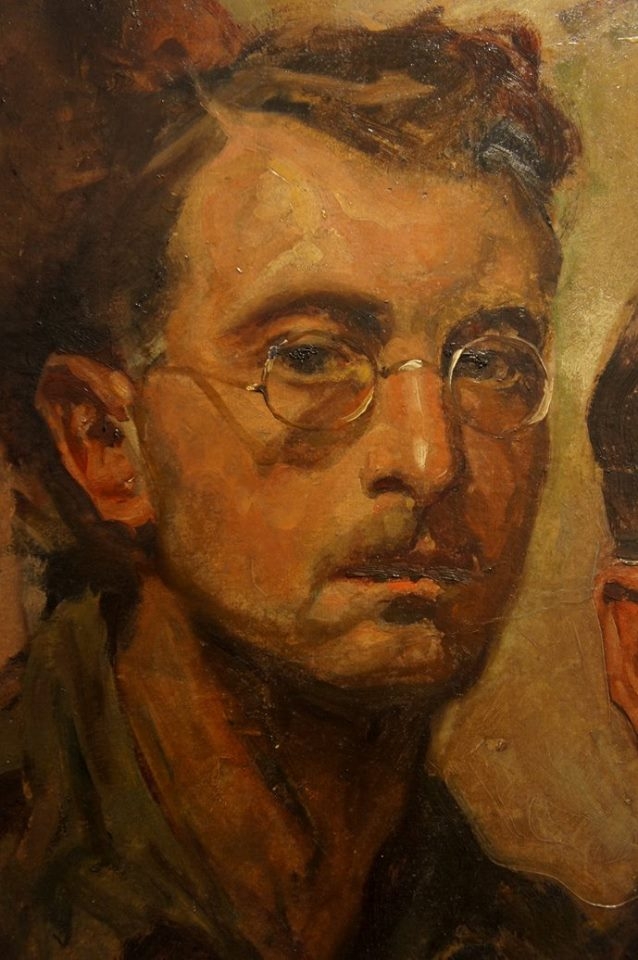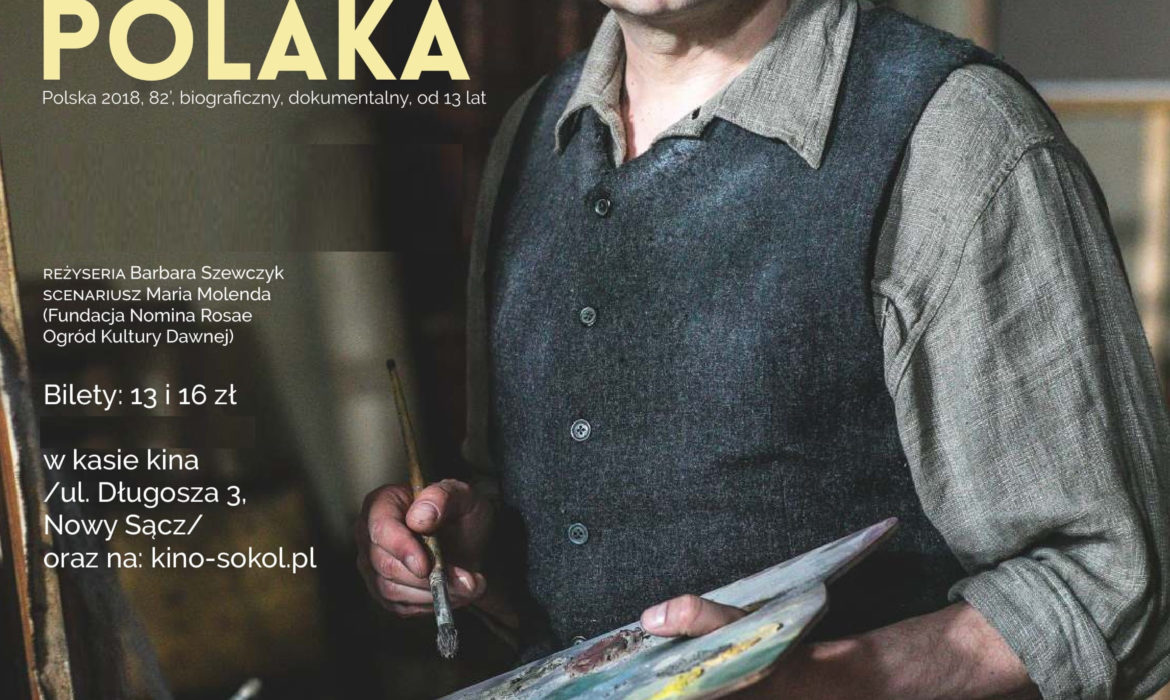Bolesław Barbacki – new movie production by Nomina Rosae.
| On Oct09,2018
Nowy Sącz is a city of rich and interesting past. In its history some individuals stand out more than others, people who contributed to the city and its citizens, and whose activities made the city famous in Poland and abroad. And moreover they are almost flag figures in the historical and cultural identity of Nowy Sącz. One of such individuals is undoubtedly Bolesław Barbacki.
Born in 1891 r., since his earliest years he has shown artistic talent, after graduating middle school he went to study in Kraków, where he studied law at the Jagiellonian University and painting at the Fine Arts Academy under the direction of Teodor Axentowicz. He went to Paris for a year to perfect his skills. As a portrait painter he became famous – both the Nowy Sącz elite and clients from the capital and from abroad hired him to paint.
But artistic activity on the field of painting was not enough for him – he founded the Drama Society, he performed and directed, his interest in tailoring made him create Industrial Women’s School of People’s School Society in 1929, which he directed until 1937. Caring for the future of his students, in 1929 he created the PSS Industrial Manufacture for the school’s graduates. He also had his research interests – for the school’s students he wrote the Costumology – or the History of Garments – a handbook for the girls to learn about the history of fashion from. He was also involved in the activities of SOKÓŁ Gymnastic Society.
The life of Barbacki was brutally ended – he was murdered during an execution organized by the Germans in 21.08.1941.

Artist’s self-portrait – collections of the Regional Museum in Nowy Sącz.
In many memories of people who knew him, and of those, whe met him even for a while, Barbacki comes back to us as a warm and caring man, who loved art, cared for his students, friends and close ones. One can say, that he is an icon for the people of Nowy Sącz – of an artist and active citizen, of a patriot in the best meaning of the word.

Portrait of Helena Jakubik, 1918, Regional Museum in Nowy Sącz.
“Boluś painted several gorgeous things lately! I especially liked Mrs Jakubik portrait – it’s a marvel, I tall you! She sits in a deckchair, in a garden, under an umbrella and around her lots of green and sun! For the whole hours I’ve sat before this portrait and couldn’t get enough of it!” From the letter of Zdzisław Barbacki to his brother Toldek, 1918.
Even though his paintings survived as well as some memorabilia and memories written down or recorded and from time to time educational projects commemorating Barbacki are organized, this figure hasn’t had the commemoration it deserves in this time and day, that we, as people of Nowy Sącz, owe him.
The life of Bolesław, his contribution in building independent Poland on a field of widely understood culture and social work, his imitable patriotism make Barbacki a person worth of a cinematic story. Even though he worked locally, what he did was an element of great effort to build independence and the community of citizens. We can confidently say, that he is a good role model.

Bolesław (nr 4) on a photograph with his family and friends during their stay in Ischl, 1915 (Photography from a private collection).
Because the cinematic project is expensive, we decided to carry it out in stages – and in 2016 we will create the movie script (which is financed thanks to the support received by the Fundation from the City of Nowy Sącz) and a booklet, that will help our effort of collecting further means to carry it out.
You can already support the movie production by donating to the Foundation with annotation ‘Barbacki’ to: ING Bank Śląski: PL39 1050 1722 1000 0022 8058 2343 Fundacja Nomina Rosae Ogród Kultury Dawnej.
We warmly invite you to help create the movie about Bolesław Barbacki!

Pages from costumology, authored by Bolesław Barbacki, a handbook for the students of tailoriung school. Bolesław in his youth learned to sew, to help his brothers and father. He made school uniforms for his borthers, undergarments, mended his father’s wardrobe, who was very fond of his son’s tailoring talents.








